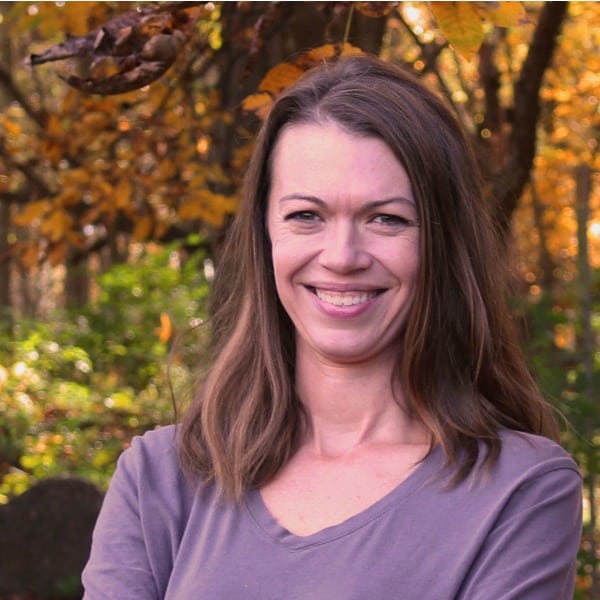Our Estate Planning Experience [Why we set up a trust]
(This page may contain affiliate links and we may earn fees from qualifying purchases at no additional cost to you. See our Disclosure for more info.)
Estate planning is one of those things everyone knows they should do. Still, most don’t do it.
According to a recent Caring.com survey, only one in three Americans has a will or trust.
And these statistics make sense when you see why people don't do it.
Many believe they need more assets to create a will or trust. Plus, estate planning can feel like a big chore that costs time and money.
That’s not to mention confusing legal terms and the emotional energy required to plan for your own death. And yet…
It's one of the most important things you can do for yourself and your loved ones.
An estate plan creates peace of mind. Because once you complete it, you know you won't leave loved ones with a costly mess when you die.
In other words, estate planning is a way to continue to care for loved ones even after you're gone.
My husband, Alan, and I recently completed our estate plan. Our motivation was to make things easier for our adult children after we're gone.
The process was painless once we took the first steps! Below, I'll share our recent estate planning experience and why we set up a trust.

Getting past procrastination
About 20 years ago, we hired an attorney to draw up a will and power of attorney documents (POAs). Our kids were little, so back then, the catalyst was to name a guardian for them.
But now, the kids are adults, and those documents needed updating.
Why didn't we do it sooner?
Like most people, it didn't feel pressing and was easy to put off. Also, we didn't know what documents we needed. And we hesitated to spend the money on an attorney to help us figure it out.
A turning point was when I read Women Who Money co-founders Amy Blacklock and Vicki Cook's book, Estate Planning 101.
After reading the book cover to cover, I better understood our options. And I knew a living trust would be a good option for us.
Still, it felt like a chore. Plus, setting up a trust is more expensive than doing a will and POAs. So, we continued putting it off.
Until my grandma died.
My grandma set up a trust after my grandpa died years ago. And, as my grandmother's health deteriorated last year, my parents also set up a trust.
When grandma died, I saw firsthand how trusts work. Since Grandma had a trust, nothing passed through probate courts.
As a result, my mom and uncle didn't have to wait for the money to pay her final bills. And my grandma's assets were transferred quickly and efficiently to her children.
Alan and I decided then that we wanted a trust to make things as easy as possible for our kids after we die.
Related reading: Do I Need a Living Trust in My Estate Plan?
Why we set up a living trust
We felt a living trust was best since it better protected assets and made things easier for our family after we're gone.
A living trust is a separate legal entity that holds assets. Trustees can change a trust and move assets in or out anytime.
Plus, it's revocable until death. And the trust continues to have control over the assets, even after death.
Read on for more on why we set up a trust.
We needed to update our will anyway.
Our old will was nearly 20 years old and designed to name a guardian for our then-minor children. But it needed to be revised since our kids are grown, and life has changed in many ways.
We would spend the money to do a new will and power of attorney documents anyway. So, we decided that part of that cost could go toward creating a living trust.
The cost of the trust included updated health care powers of attorney, financial powers of attorney, and our will (a pour-over will pairs with a living trust).
To make things easier for our adult children.
A will is super helpful to those left behind. It spells out how a person's estate gets distributed after their death. And it can help avoid a lengthy probate process.
But many wills still go through probate court (depending on the state).
Yet, living trusts avoid probate altogether. So transferring assets to heirs is often faster, easier, and sometimes cheaper than a will (when you consider probate costs).
My family's experience with my grandma's trust demonstrated the streamlined transfer of assets.
So, by creating a living trust, we hope to ease the process (and lessen the expenses) for our kids after our deaths.
Also, with a living trust, if we become incapacitated, our successor trustees could handle trust assets.
To be ready for the unexpected.
We were talking over trust details with our youngest son when he said, “It seems like you guys are planning to die.”
I could sense his discomfort. But the fact is, that’s precisely what we are doing.
First, we reassured him that we didn’t expect to die anytime soon. Then we explained that we wanted to make things easier for him and his brother when it did happen.
Just yesterday, I saw the obituary for the spouse of a college friend. He was 47 years old, the same age I am.
The unexpected can and does happen. And we want the peace of mind that our family will have less to worry about if it does.
Protection of assets
Another reason for a living trust is to keep the details of our estate confidential. Wills are publicly filed and can be contested, but trusts are private.
I've seen extended family step in and claim the estate of a long-lost relative that didn't have direct living descendants. And it left me wondering if it's what this person would have wanted to happen after their death.
We'll likely have direct living descendants to inherit our assets. But our trust spells out where assets go if our children and future grandchildren die before us. And it keeps our estate private.
Our estate planning experience
I knew establishing a trust was relatively painless, based on my family members' experience. The hardest part is gathering the information ahead of time.
Still, if you have any exceptional circumstances, that can take more time and attention.
Hiring an attorney
Some reputable online templates for wills and POAs work well and save money. And I'm all for saving money.
But we didn't want to DIY our estate planning. It was worth it for us to spend the money to hire an attorney to ensure the documents were legal and accurate.
We didn't want to make a mistake our family had to deal with after we were gone.
So, after checking out several local attorneys, we found one we knew would be a good fit.
How did we choose?
- People we knew and trusted had worked with our attorney.
- She does only probate and estate planning, so it’s her specialty.
- The attorney’s website provides step-by-step details of the process.
- The attorney's flat fee was low since she has a clear-cut process and little overhead (she uses a coworking space). The cost was half what others charge, and we got stellar service.
Doing our homework ahead of time.
Part of our attorney's process includes an intake form before the in-person appointment. This eliminates a meeting (saving time and money), and she could prepare our documents before our meeting.
We're reasonably organized, so the intake took about an hour or so. It included our basic information, beneficiaries and POAs, and our assets.
Since we had questions when completing the intake form, we called them. They told us to list our questions and concerns on the intake form, and we'd address them at our meeting.
Meeting with the attorney and signing
Our attorney had the estate planning documents ready before our meeting. Then, we went through them at the meeting on a big screen in a conference room.
We asked questions, got explanations, and changed our documents on the spot. Once we were happy with all the documents (trust, pour-over will*, POAs), she printed them, and we signed (with witnesses). We took our documents home that day.
*A pour-over will funnels assets not titled in the trust into the trust at death (such as personal bank accounts).
After the trust is created
It can be easy to set up the trust and forget it. But retitling assets and naming the correct account beneficiaries is an important step!
Without doing this, assets won't funnel through the trust and are subject to probate court.
Our attorney filed the paperwork to retitle our house. She also gave us a checklist of homework to complete. We needed to add beneficiaries or Payable on Death (PODs) to some of our accounts.
And that's all! After retitling assets into the trust name and listing beneficiaries on all personal accounts, the trust is set up!
Closing thoughts
I left the attorney's office feeling incredibly relieved to have a trust established and all estate planning documents up-to-date.
It's comforting to know that we removed some of the burdens our kids will have to deal with after we die.
Additional Reading:
- What Others Should Know if Something Bad Happens to You
- What is the Best Life Insurance To Buy – Term or Whole?

Article written by Amanda
Amanda is a team member of Women Who Money and the founder and blogger behind Why We Money. She enjoys writing about happiness, values, money, and real estate.
